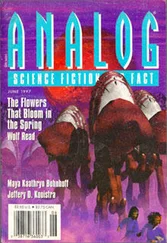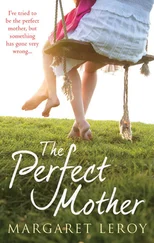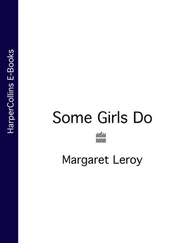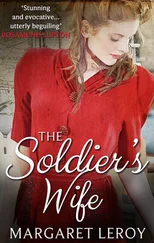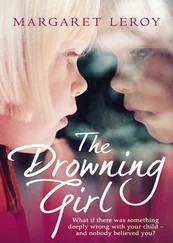1 ...6 7 8 10 11 12 ...16 ‘Yes, of course,’ I tell her. ‘Everyone will have their parents.’
‘They won’t,’ she says. ‘I bet they’ll all come with their mates in a van. They won’t have their parents. And, Mum.’ Her frown deepening as another fear comes rushing in. ‘What if they all know each other already? What if half of them come from the same school and they’ve known each other for years?’
‘Molly, stop freaking,’ says Amber severely.
The restaurant is crowded, but we manage to get a table by the window. Molly takes out her lipsalve. When her chicken pie comes, she just dips a chip in the sauce and sucks at the end of the chip. I terribly want her to eat, as though I have some unexamined idea that we’re feeding her up for weeks, as though this final family meal will magically sustain her.
She feels my gaze on her.
‘Sorry, Mum, I’d normally like it. I just can’t eat today.’
She’s hunched in on herself, as though she’s shrunk a little. I wonder how well I have prepared her for this moment of moving on, the ultimate test of my mothering. Maybe I should have pushed her more towards independence—right from when she was tiny and I used to go on feeding her, when I should perhaps have urged her to take the spoon. She was always rather too willing then to let me look after her. Whereas Amber would grab the spoon from the moment she could clasp it, mashed pears and custard flying exuberantly everywhere. Amber would grab whatever she wanted however much mess it made.
Another family comes to a table near us, two parents and a serious young man in a stylish denim shirt. He has a chiselled face and fine dark hairs on his arms. Amber glances at him, then away. She has an intent look.
She catches Molly’s eye.
‘Mmm,’ she says, thoughtfully. ‘I hope he’s going to your college.’
‘For Chrissake, shut up,’ hisses Molly.
Amber’s lips curve in a small secret smile.
We have crème brulée for pudding. Amber wolfs hers, then takes herself off to the cloakroom; and comes back by a devious route, brushing past the boy’s table, catching his eye and smiling slightly, keeping her lips pressed together to hide her braces. I love it that it comes so easily to her, this intuitive choreography that I’ve always found so perplexing.
I murmur to Greg, ‘Perhaps she’ll work a bit harder now. Maybe she’ll see the benefits.’
He shrugs. He gives me a puzzled look. Perhaps he didn’t see.
‘We need to get back to the car,’ he says. ‘We’re out of time on the meter.’
He pays the bill.
‘OK?’ I say to Molly.
She nods. She puts on more lipsalve.
We park at Molly’s college and she goes to the porter’s lodge and is given her key. Two o’clock chimes across the city: we hear the hollow sounds of many clocks and bells. We’re directed round the back; there’s a patch of gravel to park on, a tangled herbaceous border, a decrepit potting shed. The plants in the border are drying out and dying back with autumn—shaggy heads of chrysanthemums, and tatty Michaelmas daisies, their colours fading as though they’ve been left too long in water. The thin white stalks of some of the flowers have a calcified look, like tiny bones. Rich sunlight lies over everything. Around us, other families are unpacking their cars.
We go through the open fire door, along a brown corridor with many photographs of academic women, who all have solemn expressions and mildly unkempt hair. White rose petals have blown in through the open door onto the carpet. Someone has drawn genitals in black felt tip on the figure on the door of the men’s cloakroom.
Molly unlocks her door. The room has that immediate bleakness of all uninhabited student rooms; it’s under-furnished and nothing matches, the purple curtains ugly against the mustard walls. The ceiling is high. Our voices echo.
A brief panic flickers over her face, now it’s really happening.
‘I like the view,’ she says determinedly.
We go to the window. The gardens are spread out before us: a velvet lawn, an ancient beech tree, its massive limbs propped up with wooden struts, a round flowerbed with a sundial in the middle. It all has a subtle dishevelled loveliness, nothing too neat or ordered, no gravel path without its casual edging of lavender or sprawl of yellow daisies. Some autumn cyclamen, frail as moth wings, are flowering in the bare earth under the beech tree.
‘God, Molly,’ says Amber. ‘I wish I was a geek.’
We bring the boxes in, while Molly starts to unpack. I tip out cosmetics into a drawer, and the vitamins I bought for her. Her bath oil isn’t properly fastened and spills as I unpack it. I bite back the urge to tell her off. I go to the bathroom to wash the oil from my hands. The basins are swarming with green gauzy flies, and word-processed posters urge the ecological advantages of showers: ‘If you’re gagging for a bath, share one with a friend.’
The window is open, looking out over the gardens. I linger there for a moment, resting my arms. Nostalgia floods me. I’m eighteen again, walking a sepia corridor much like this one. Memories pass through me, a kaleidoscope of images. Men I went out with, tutors who scared me. The choir I used to sing in with Max, performing very old music in some chill college chapel: and afterwards there’d be a party where everyone got drunk because the medical students had doctored the punch with ethanol. I think of a tight black velvet dress I wore for one of those concerts, and, at the party afterwards, a stranger who came up behind me and ran his hands quite slowly down my sides, his palms curved into me, his fingers just missing my breasts. And I remember how I felt then that life was a quest or journey, a movement onwards towards some ultimate attainment: that at some point you’d get there, there’d be a kind of clarity. And here I am, years later: yet the present remains tentative, far too full of traffic jams and compromise: and the thing I thought I was moving towards continues to elude me.
I take the final suitcase to Molly’s room. There are urgent lists in my head, things I need to tell her: This is how your heater works, and if you leave your radio there on the window sill somebody could steal it, and promise you’ll take your vitamins. Amber is pinning Molly’s postcard collection to the pinboard.
Molly unpacks an alarm clock. It’s frivolously pink and was a present from a friend: she’s never used it.
‘I want to know you can set that thing,’ I tell her.
‘For God’s sake, Mum, I’ll manage.’
I insist. She tries, but it’s complicated.
‘I’ll be OK,’ she says. ‘I can set the alarm on my phone.’
‘But then you have to leave it on all night—and what if somebody rings and wakes you?’ My voice is shrill: all my anxiety about her focused onto this clock.
She puts her hand on my arm.
‘Mum, it’s OK. Really.’
She comes to the car park with us. It’s colder now.The wind stirs the leaves of the beech tree: the leaves are drying though they haven’t fallen yet, and there’s a rattle to the sound, a harshness that makes you think of winter. Behind us a girl with a sleek black bob is weeping as her parents’ car drives off. We stand there for a moment. Molly seems so small, suddenly. I put my arms all round her.
‘I’ll be fine, Mum,’ she says.
I realise I am utterly unprepared for this moment. I hold her for a moment and then she pulls away.
Amber wraps herself round her sister.
‘Go, girl,’ she says.
Greg gives Molly a rare hug. She holds him a little stiffly.
We get into the car and Molly turns and walks away. As we crunch out over the gravel, past the borders where the flower stalks are pale and fine as bones, I turn to watch her. She’s on the steps to the fire door, talking excitedly to the girl with the shiny bob, who a moment ago was crying and wanting her mother, and who is laughing now and flicking back her hair.
Читать дальше

